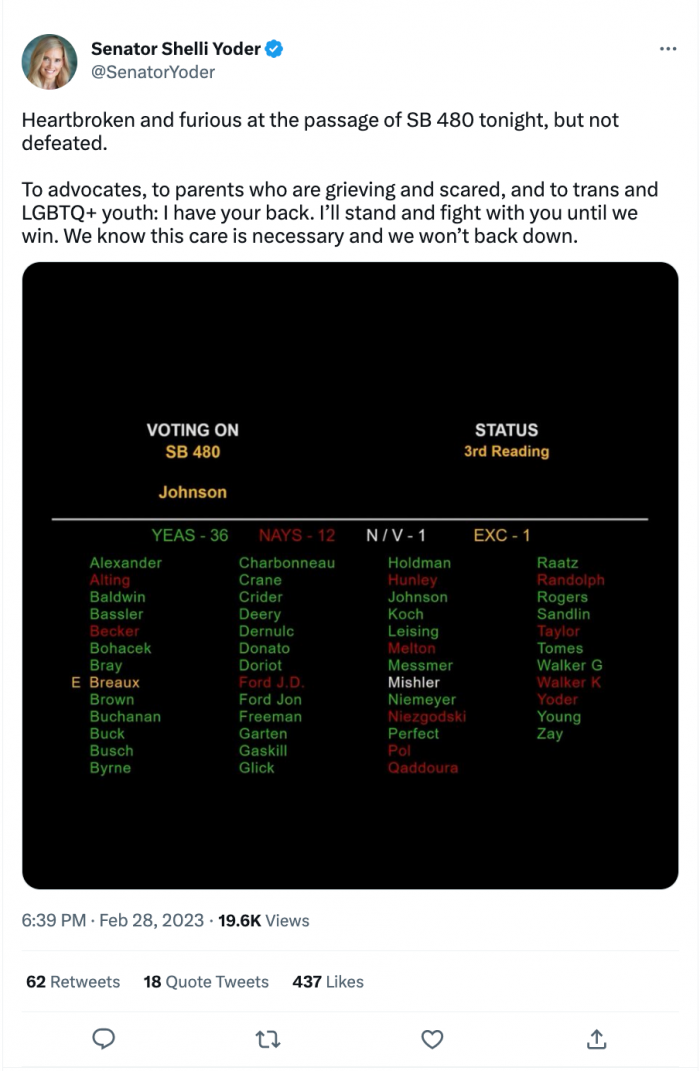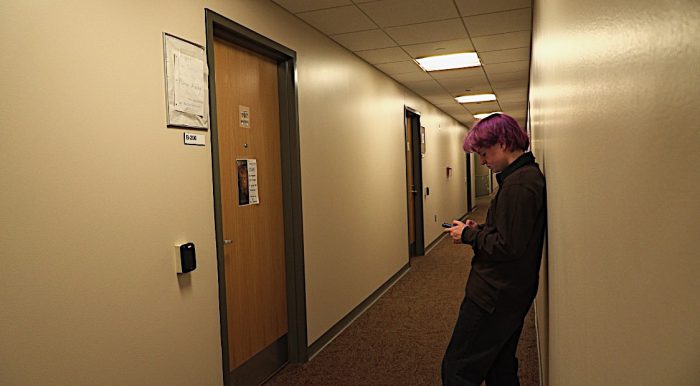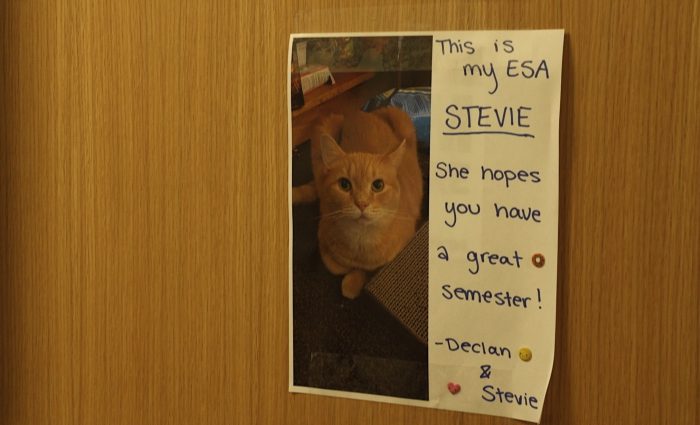The Indiana House and Senate published 13 bills targeting transgender youth at the beginning of the new year. Hoosiers families are left wondering if the state can continue to be home.
The Indiana House and Senate published 13 bills targeting transgender youth at the beginning of the new year. Hoosiers families are left wondering if the state can continue to be home.
The proposed bills target several different transgender topics, restricting physical care when it comes to gender affirmation, mental services, and counseling. Proposed bills also deal with monitoring and limiting school materials in classrooms and libraries. Under the bills, students will be limited in their freedom of expression in clothing at school and teachers will be forced to report students displaying any behavior of gender dysphoria.
The Senate has passed two bills against LGBTQ+ youth. Bill 480 bans physicians and practitioners from professional gender transition procedures and Bill 350 supports the use and practice of conversion therapy.
According to the Human Rights Campaign, “Recent studies have found that receipt of puberty blockers can dramatically reduce risk of suicidality–in some cases by over 70%–among transgender youth, compared to those who were unable to access desired treatment.”
State Senator Shelli Yoder, District 40, is frustrated but remains hopeful for the future of Indiana youth despite the repetitive attacks against them. She uses her power to campaign and educate the public while fighting for their rights in the legal system.

Former IU student Declan Farley also uses his platform to speak out against discrimination and transphobia while educating the public through his own fight.
Declan went viral when he brought the harassment he received on campus from fellow students on his dorm floor to TikTok. After gaining the attention of many and accumulating 2.2 million views speaking out about his experience, Declan organized a rally and peaceful protest to support the LGBTQ+ community in Bloomington. Since then, he has decided to withdraw his enrollment from the university due to a lack of support from the administration and out-of-state financial burdens that he didn’t feel were worth it.










Declan remembers having strong feelings as a kid and teenager about feeling unsure of his gender and recalls feeling anxious about fitting in with the other students in high school. Born as a female, Declan always leaned towards a more masculine wardrobe in elementary and middle school and felt self-conscious about gender identity in dresses, so he hyper-feminized himself in high school and dated a boy to try and convince himself he was like other kids. The summer before his senior year, he made the decision to cut his hair short and learned about being transgender shortly after.
Being from a small town in Alaska, Declan wasn’t exactly familiar with the concept of being transgender until he did his own research and finally felt like he could relate. After he turned 18, he fully realized that he was trans-female to male. He became hyper-masculine but now doesn’t care about the way other people perceive him.
His parents were initially confused about how to react. They wouldn’t initially support him after coming out to receive testosterone treatment, but Declan says they are now highly supportive of him.